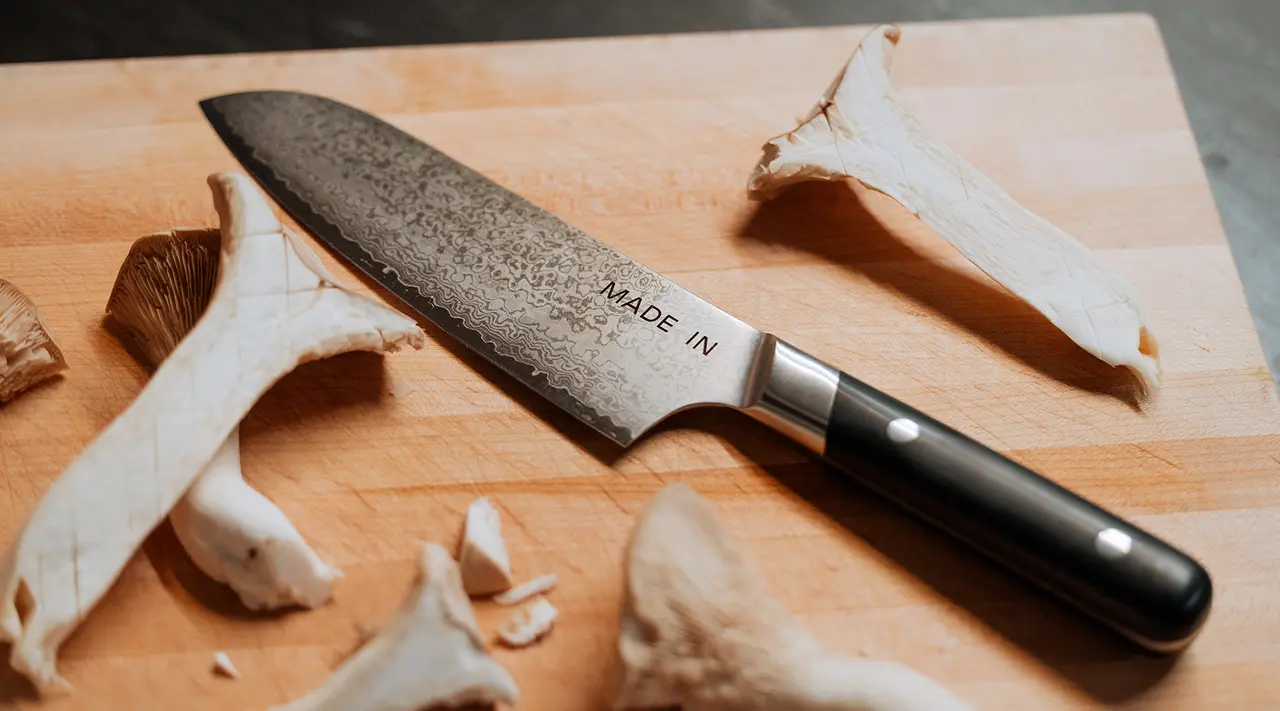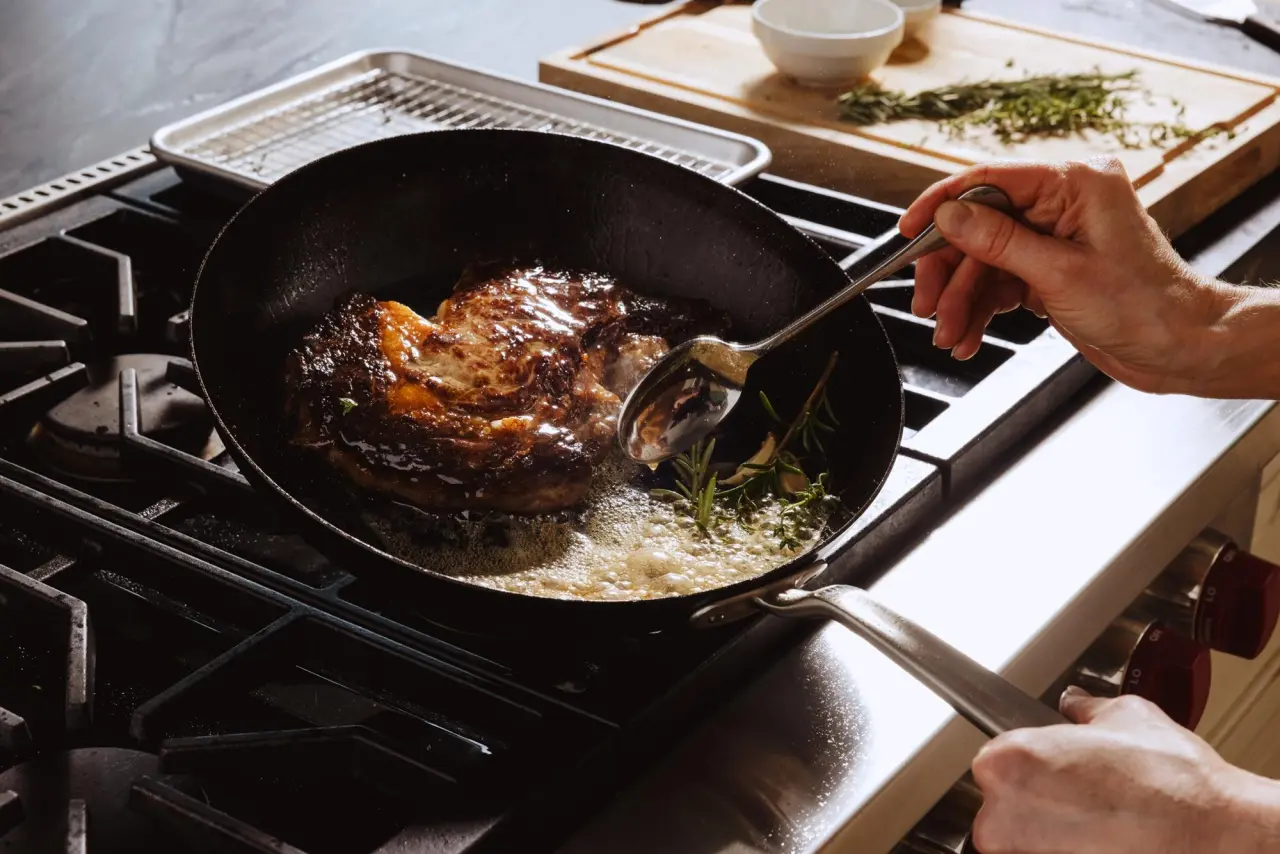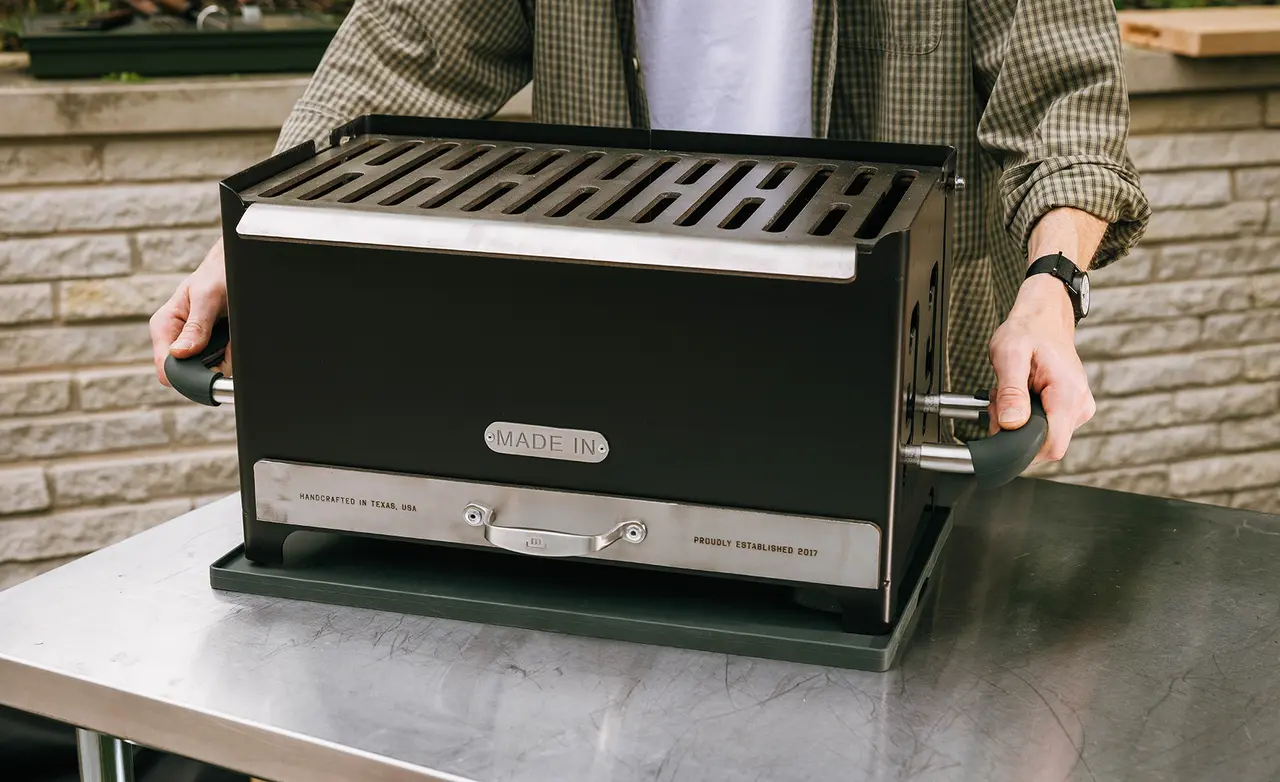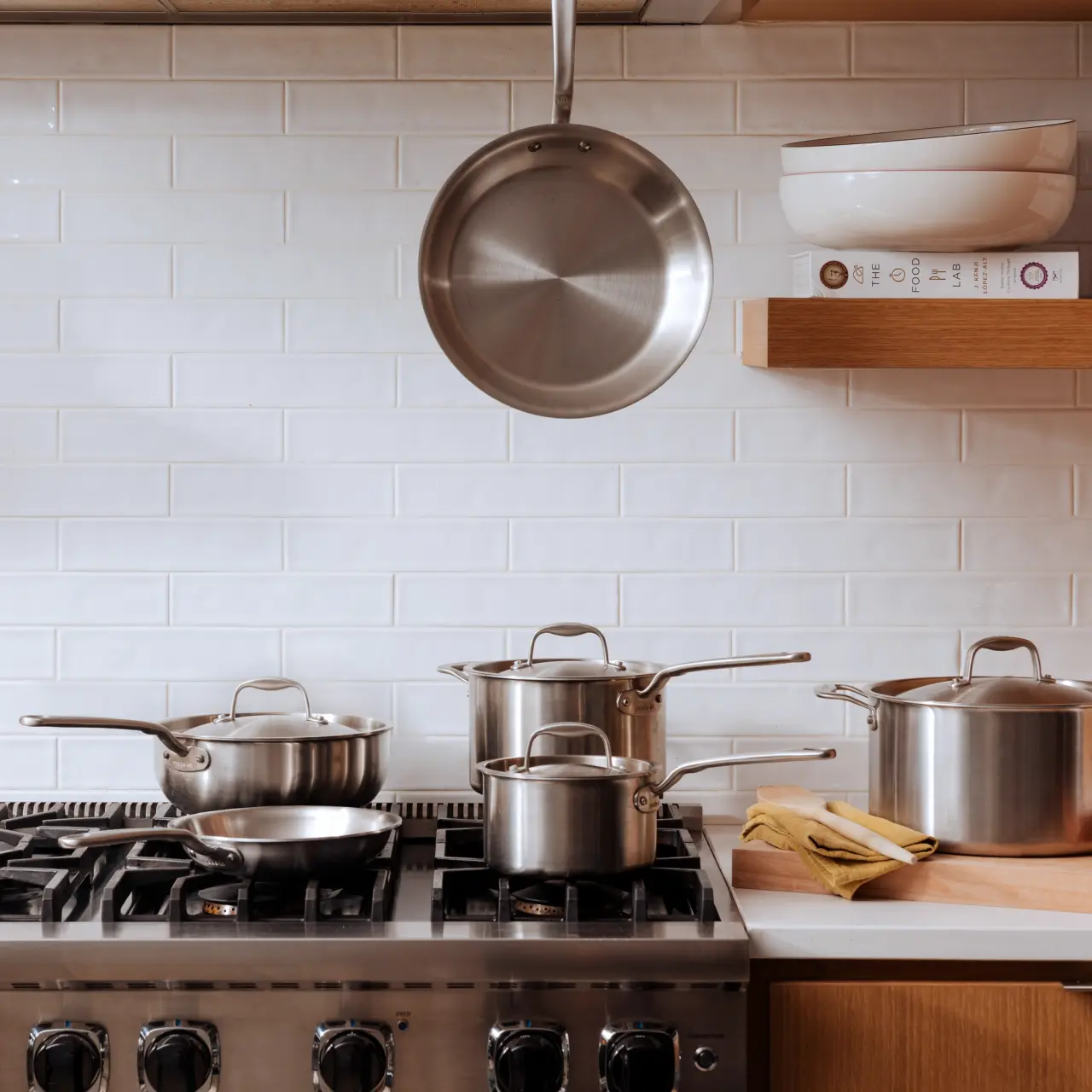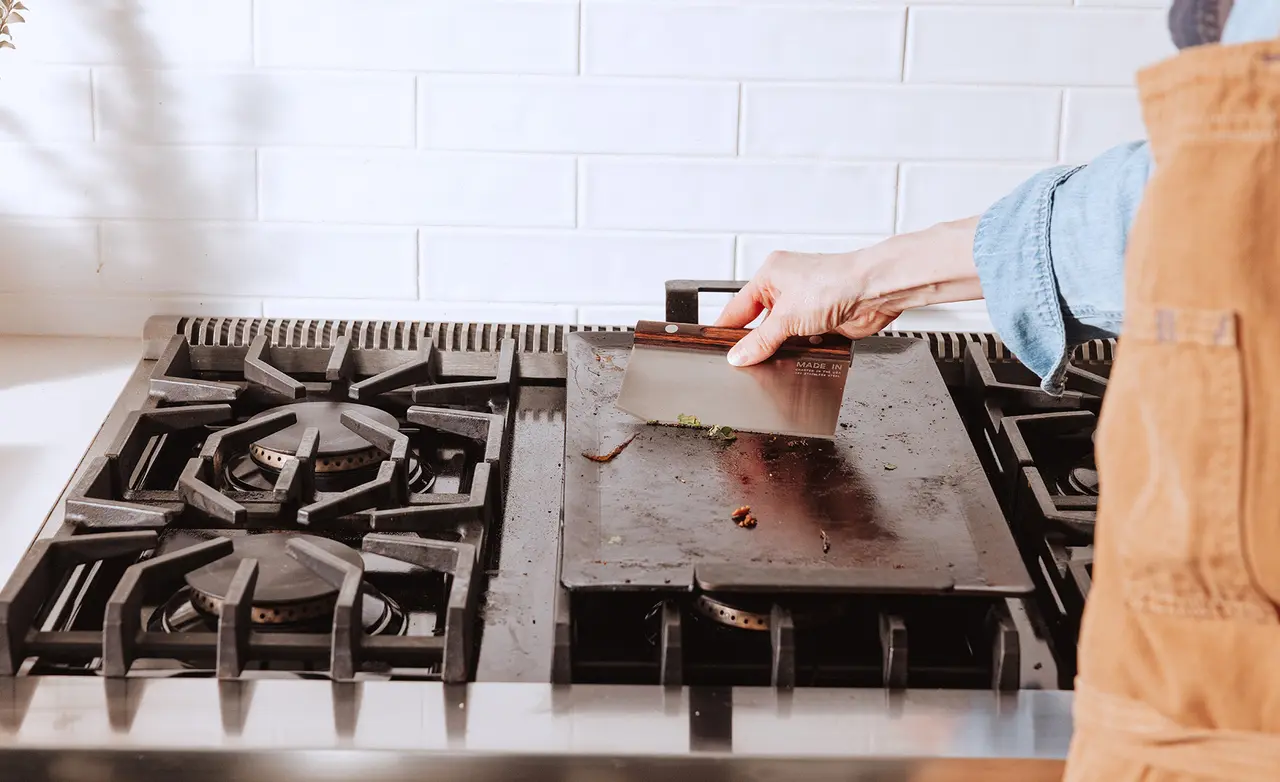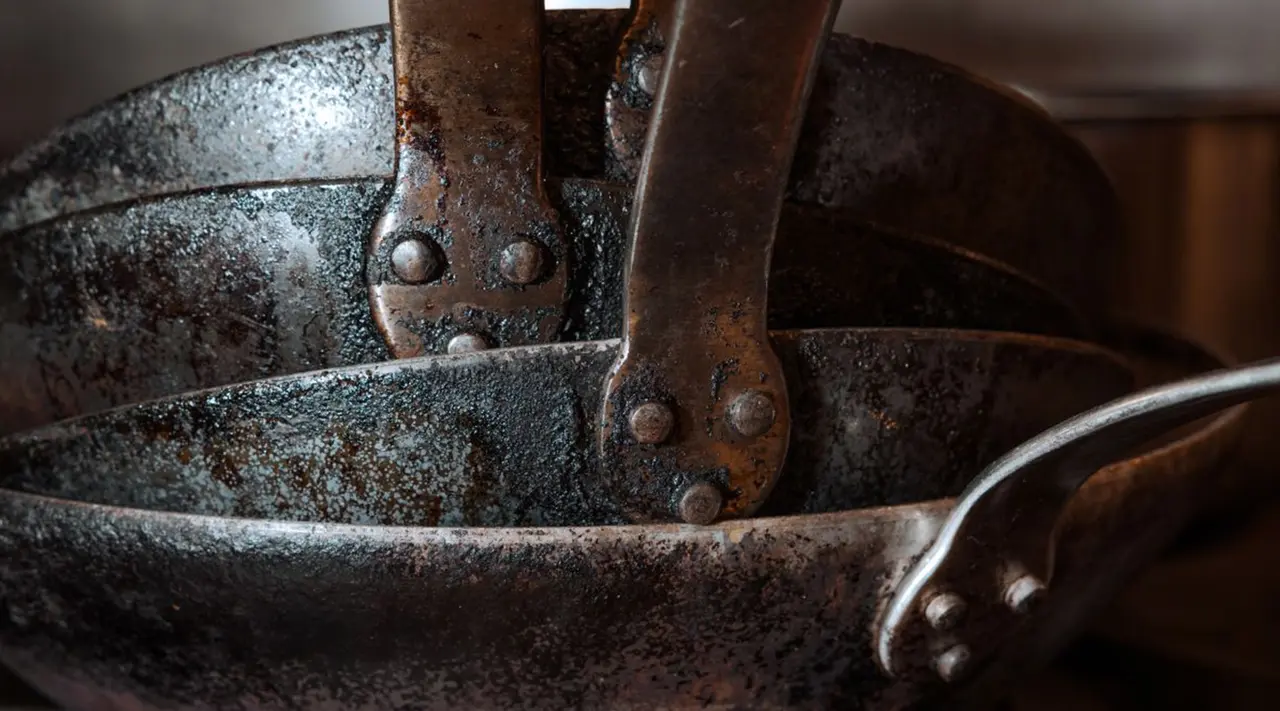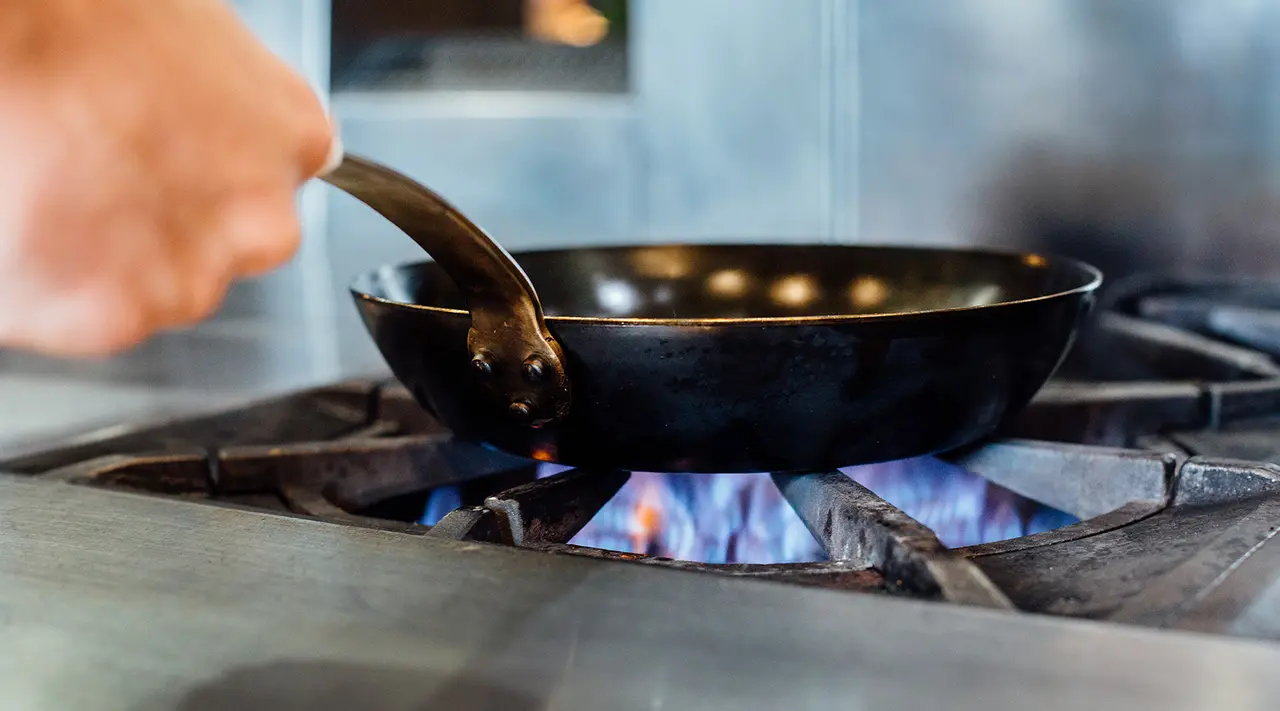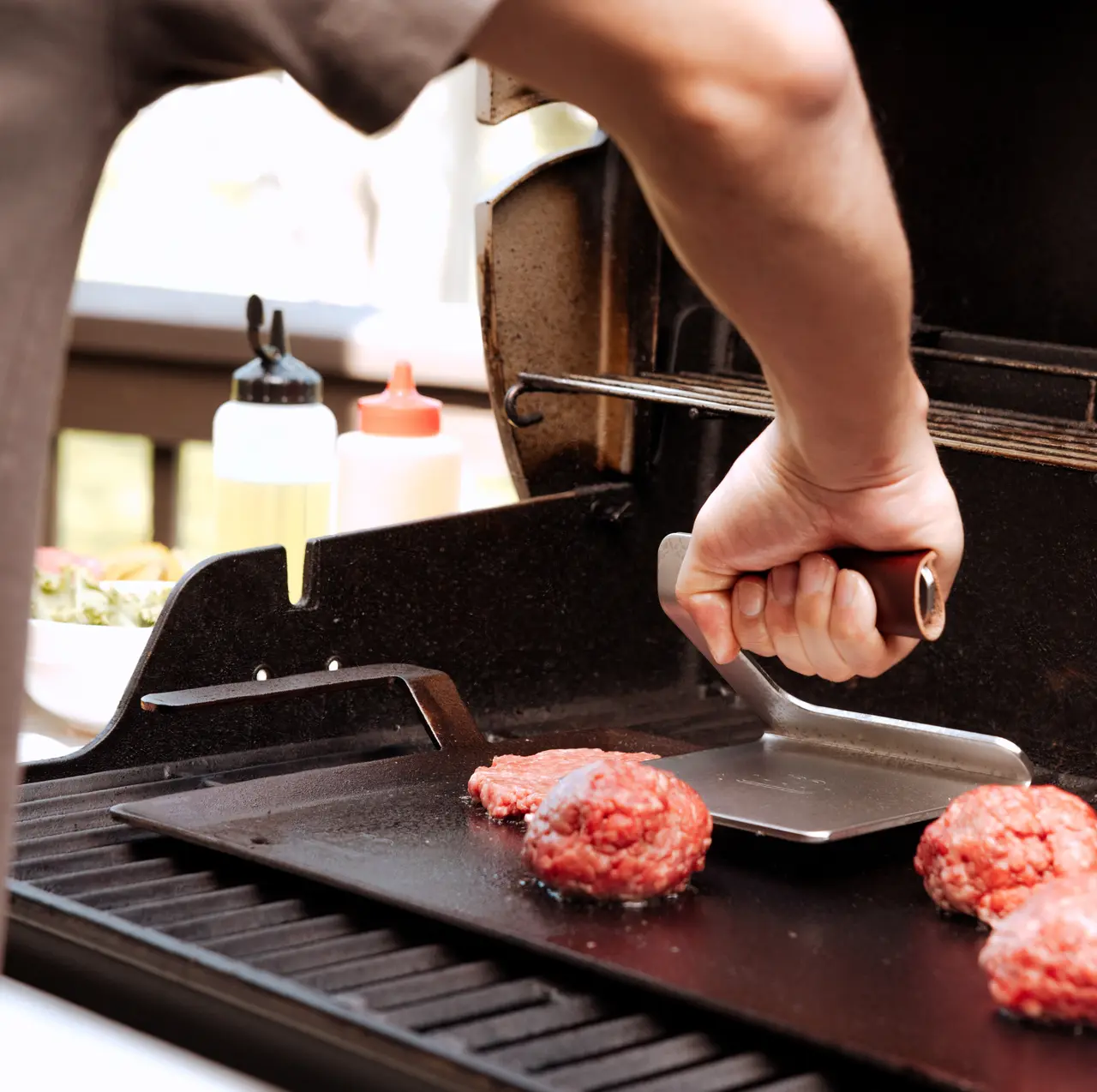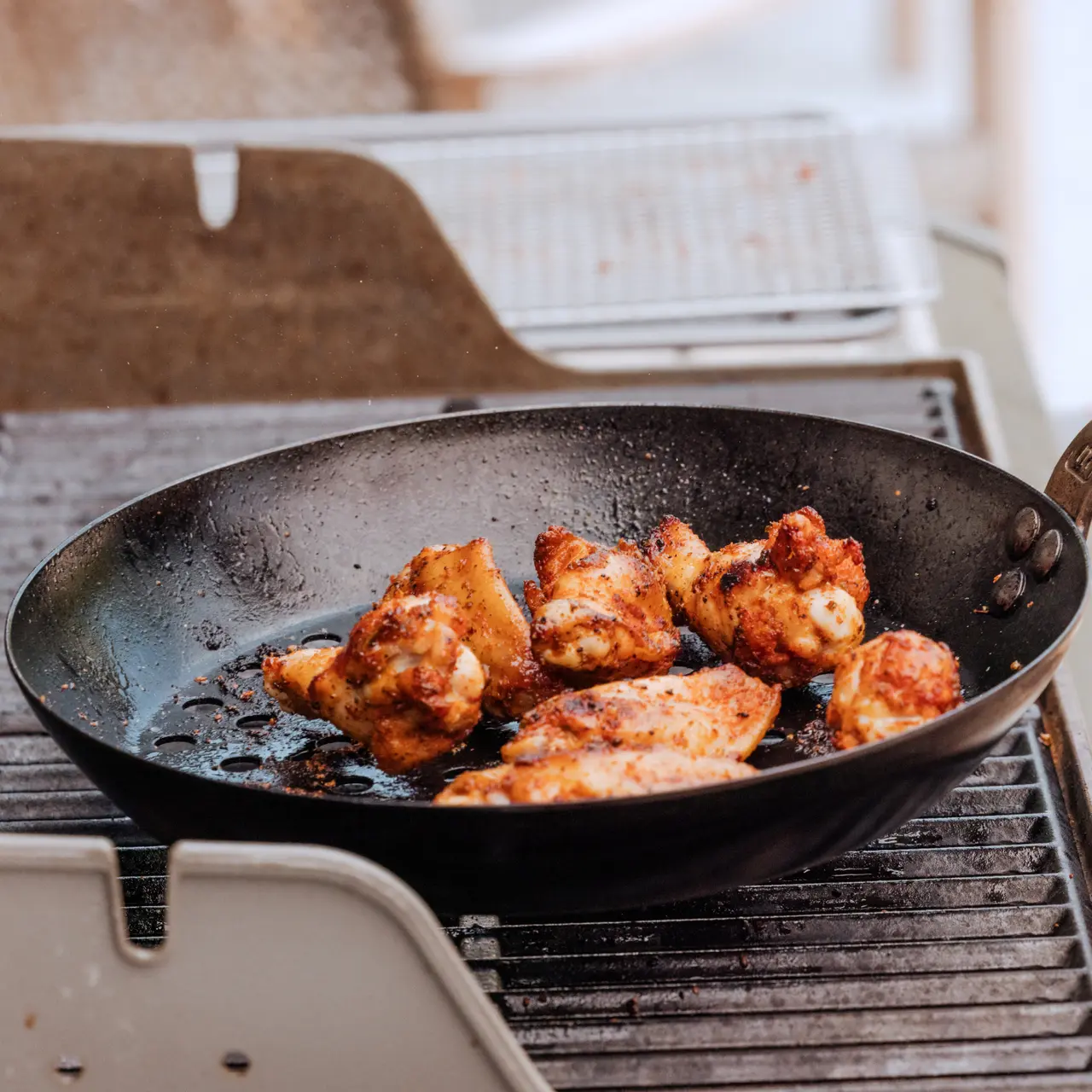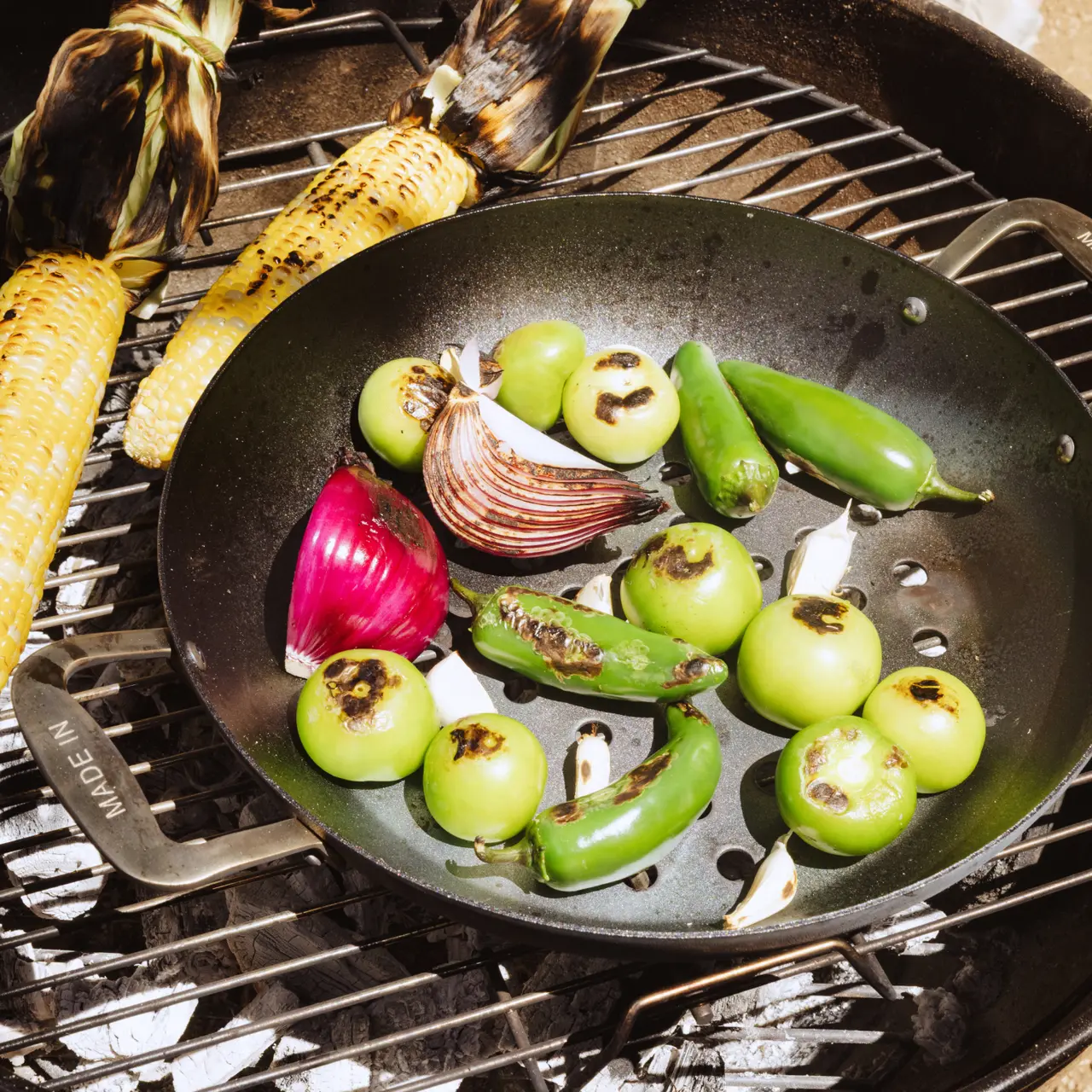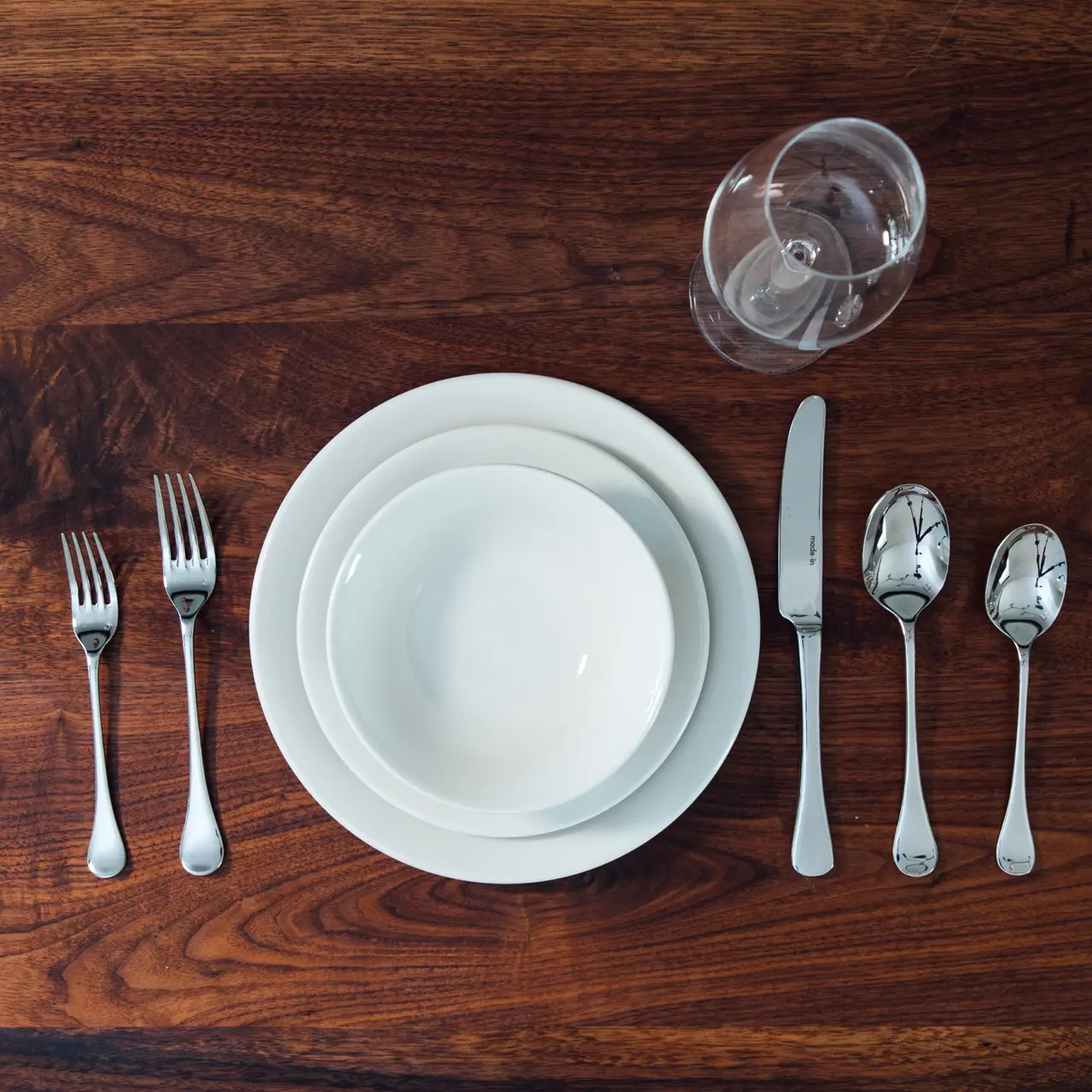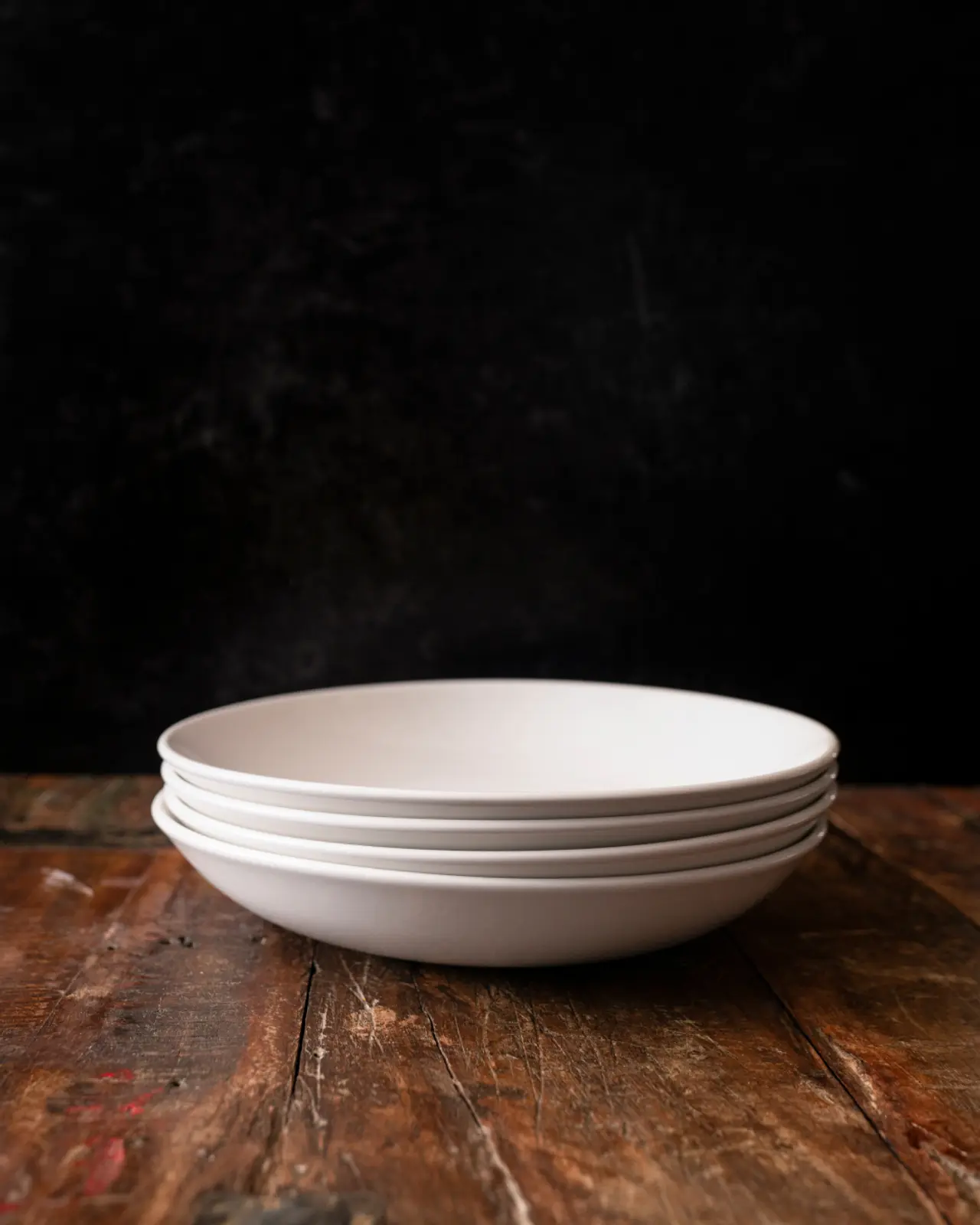We’re delighted to launch a new line of Damascus Steel Japanese knives, adding another sharp addition to our knife collection. Damascus Steel describes a specific process of folding and forging various alloys over one another, creating the blade’s signature wavy look. Our blades consist of 66 layers of steel with a VG-10 core (a type of high-grade stainless steel common in Japanese knife-making). The blade is made with both carbon and cobalt, increasing strength and durability while also making a hard knife with an extremely sharp edge. Each of the three styles—the Gyuto, Nakiri, and Santoku—feature 15-degree angled blades, meaning each slice, dice, and cut will be super precise.
We know you care about maintaining your cookware and tools in general, but with such a special product, we want to make sure you have the right tools and knowledge to keep those blades sharp and shiny for years to come. Read on for a complete guide on how to clean Damascus Steel.
Understanding Damascus Steel
Context is everything, so first, a bit of history. Like many things lost to time, it’s unknown how blades came to be known as “Damascus,” but the city of Damascus, Syria, likely plays a role in either the trading or making of blades. The process of forging alloys (a mix most commonly of metal and another element) dates back two thousand years to South India, where it was known as ukku (or the Anglicized word “wootz”). The technique was first applied to swords, and through centuries of trade, conquest, and innovation, the style traveled around the world.
Today “Damascus Steel” refers to a specific style of knife, characterized by a wavy pattern unique to each blade. In our case, the VG-10 core contains a higher carbon content than any knife in our collection, making the Damascus Steel knives sharper for longer. Forged in Seki, Japan—known as “The City of Blades”—each knife is full tang, perfectly balanced, and exceptional.
Why Proper Care Is Crucial
Although Damascus Steel is hard and tough, like most any knife, it’s still susceptible to rust and corrosion. In order to keep your knife in good shape and performing well, it’s important to clean and maintain your knife properly.
How to Clean Damascus Steel
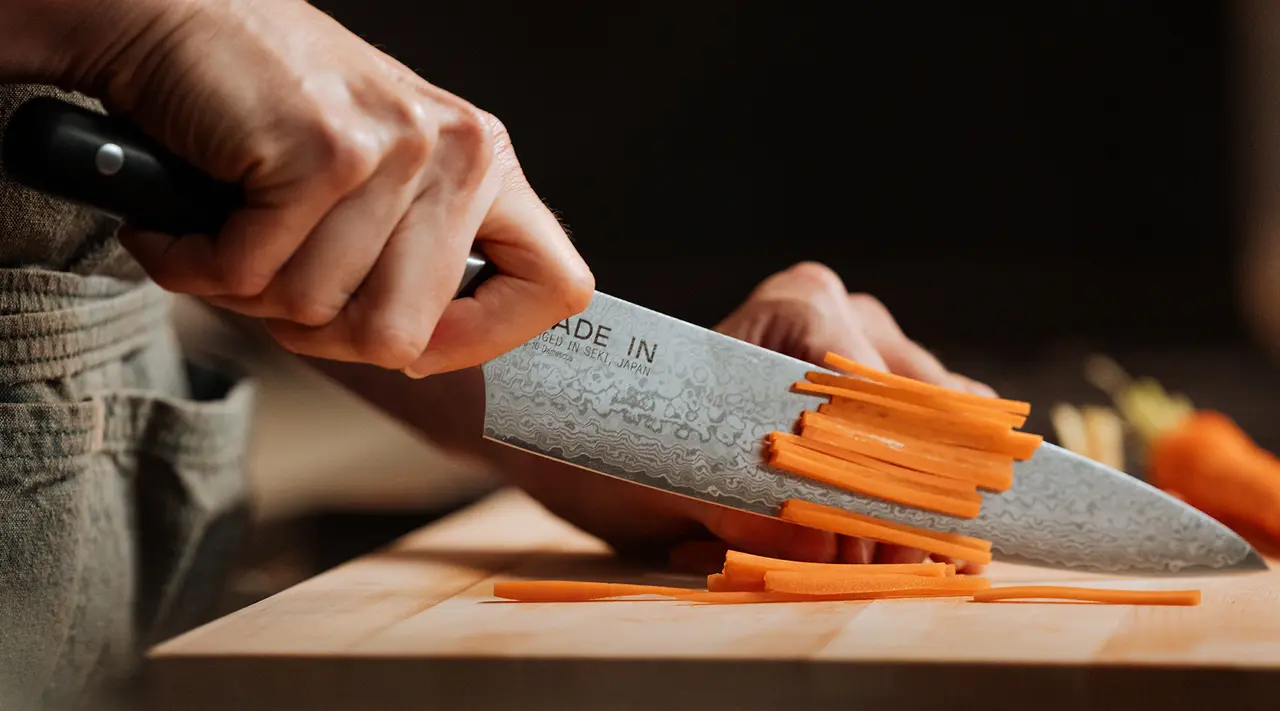
Similar to our other knives, we recommend keeping a specific set of cleaning supplies and tools on hand for knife maintenance, including:
- Mild dish soap
- Soft sponge or cloth
- Warm water
- Drying towel
- Mineral oil or specialized knife oil
- Soft-bristled toothbrush for detailed cleaning
- Rust eraser (just in case!)
It’s best to clean your knife immediately after using, as this helps prevent stubborn, stuck on food particles from diminishing your blade. Remember, this is a sharp knife; always keep the blade pointed away from you. For even more safety and steadiness, you can set the knife on top of a dish towel with the blade facing away from you. Gently wipe each side of the blade with a soft cloth to remove any food debris, then clean your knife.
Step 1:
Create a soapy solution with mild dish soap and warm water. Your regular dish soap—provided it’s not a super harsh or abrasive one!—will work well.
Step 2:
Gently scrub the blade with your sponge/cloth in the direction of the blade’s pattern.
Step 3:
Rinse thoroughly with warm water.
Step 4:
This is the most important step: Dry the blade immediately with a towel to prevent water spots and rust.
Since the Damascus contains more carbon than our other knives, they are more prone to rust. To help protect against moisture, you can buff a thin layer of mineral oil into the blade (again, in the direction of the blade’s pattern). Once done, store the knife in a dry place, preferably a knife block or plastic sheath.
Common Mistakes to Avoid
It’s important to know what to do, but it’s equally as important to know what to avoid. Below are the most common mistakes people make when cleaning knives.
Using Abrasive Materials
We generally discourage the use of abrasive materials when cleaning any of our tools, but especially our knives. Scratchy sponges, steel wool, and so on can damage the blade and lead to future rusting issues. Avoid abrasive cleaning supplies, too: anything with chloride is a no go.
Soaking the Knife
While soaking pots and pans can be a good way to help dislodge stuck on bits of food, prolonged exposure to water will increase the risk of rust and corrosion in a knife.
Dishwasher Use
Don’t put your sharp knives in the dishwasher, especially not Damascus Steel, lest you wish upon them a quick degradation in quality. Dishwasher detergents are generally harsher than dish soap, and the prolonged exposure to moisture is bad news for blades.
How to Maintain Damascus Steel Knives
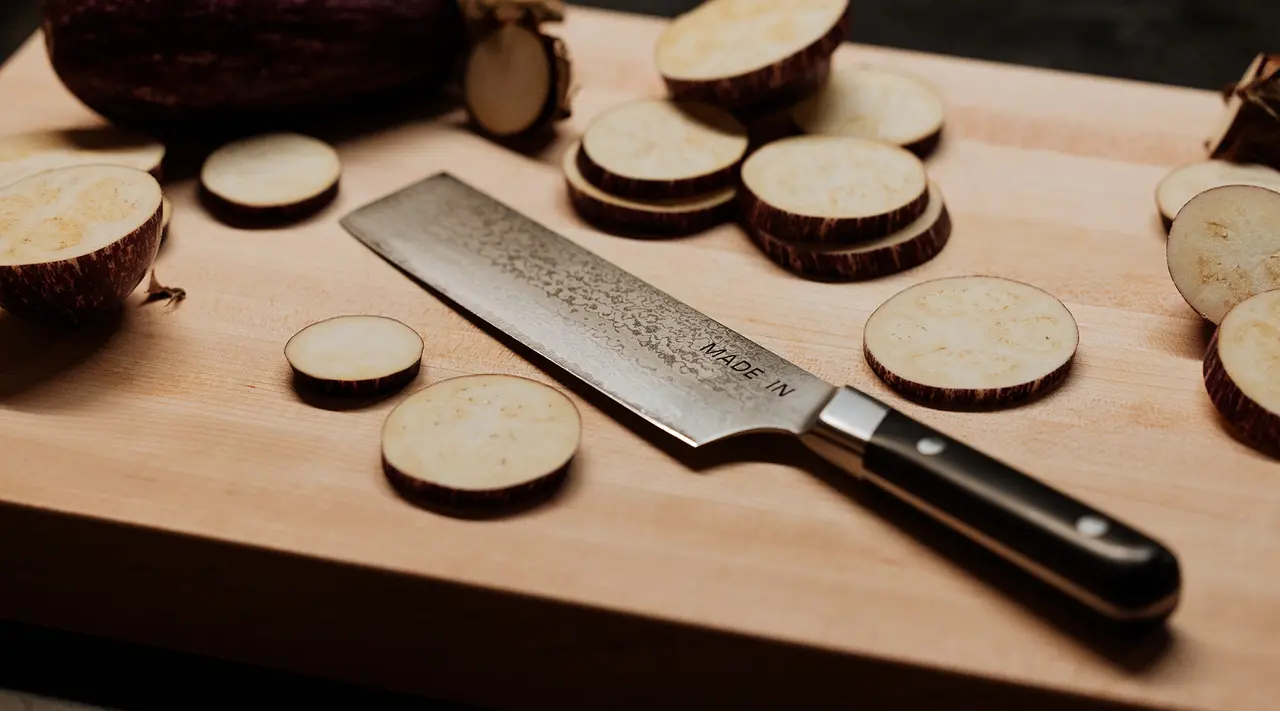
Damascus Steel comes with a few special maintenance tasks to keep the blade looking its best.
Regular Maintenance Tips
As mentioned above, our Damascus Steel Knives feature a higher carbon content than our other knives. More carbon means a higher chance for rust and corrosion (think carbon steel and cast iron). Much like a skillet, regularly applying oil to your blade will create a moisture barrier and build up a patina. Use a mineral oil or other neutral, flavorless oil, rather than something like olive oil, as it will go rancid. Gently buff a tiny amount of oil into the blade in the direction of the grain.
Also important: proper knife storage. For Damascus Steel, we recommend using a knife block or in-drawer insert. A plastic sheath can be useful for preventing nicks if you’re keeping your knife loose in a drawer.
Sharpening Tips
There’s not much difference between sharpening our Damascus Steel knives and sharpening our French-made blades. We recommend a whetstone or professional sharpener versus an electric one, but above all we recommend keeping your knife sharp—no matter how you go about it. For more details and step-by-step instructions, check out our guide on how to sharpen Damascus Steel knives.
Ready to Shop?
We’re so excited to add high quality, Japanese artisan-crafted Damascus Steel to our knife collection. Knowing the ins and outs of your Damascus Steel will ensure your blades stay sharp and good-looking for years to come.
